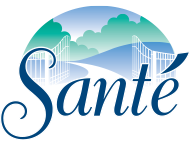You or someone you care about may get a recommendation from medical professionals to try a family therapy program. But you may be wondering, “What is family therapy?”
Family therapy is a type of treatment that’s designed to help with issues that specifically affect family functioning and communication. Targeting these issues may improve the mental health of more than one family member. Moreover, family therapy can help family members build stronger relationships and better manage conflicts within the family system. Searching for a family therapy program near Dallas, TX? Contact Santé Center for Healing by reaching out to our team online or calling 866.238.3154.
What Is Family Therapy?
First of all, family therapy is a type of psychotherapy, which can also be called psychological counseling or talk therapy. How does family therapy work to improve the mental health of clients? It helps family members improve communication habits and resolve conflicts properly.
Family therapy programs are often short term. It may include all family members or only those willing or able to participate in sessions. Family therapy sessions can teach clients skills to deepen family connections and get through stressful times, and these skills can help even after clients have completed the entire family therapy program.
Family therapy can be provided by a clinical social worker, licensed therapist, or psychologist. These therapists have degrees and may be credentialed by the American Association for Marriage and Family Therapy (AAMFT).
How Does Family Therapy Work?
There are many different family therapy techniques, and each of them works in a slightly different way. However, family therapy can help clients improve troubled family relationships. Family therapy techniques may address specific issues such as:
- Conflict between parents and children
- The impact of substance abuse
- A mental illness on the entire family
- Marital or financial problems
In general, family therapy can be useful in any family situation that causes stress, grief, anger, or conflict. A family may pursue family therapy along with other types of treatment for mental health, especially if a family member has a substance use disorder or another mental illness that requires additional focus.
In the case of addiction, a family can attend family therapy while the family member struggling with addiction participates in residential treatment, which can include medication-assisted treatment (MAT) and individual therapy sessions.
What Are Some Common Family Therapy Techniques?
The techniques utilized in family therapy typically depend on some primary factors — such as the specific needs of the family and the theoretical orientation of the therapist. Some family therapy techniques to utilize in a comprehensive treatment program include:
- Behavioral techniques: These methods often focus on skills training to help family members address specific problems. For example, modeling and role-playing could be used to help family members resolve common communication issues.
- Psychodynamic techniques: These methods involve assessing how each family member interprets and then responds to problems they’re facing. The therapist works with the family to develop brand new emotional insights and explore other, healthier ways of responding more effectively.
- Structural techniques: These methods focus on helping family members understand power dynamics and set boundaries within the family. Such techniques can help families build healthier routines that improve how the family functions.
Techniques used in family therapy often focus on assisting with major changes within a family, helping family members accept things they cannot control, improving communication and collaboration, and improving emotional awareness.
Ready To Learn More About Santé Center for Healing’s Family Therapy Program?
If you’re looking for a family therapy program near Dallas, TX, contact Santé Center for Healing today. You can reach out to our team online or call 866.238.3154.







